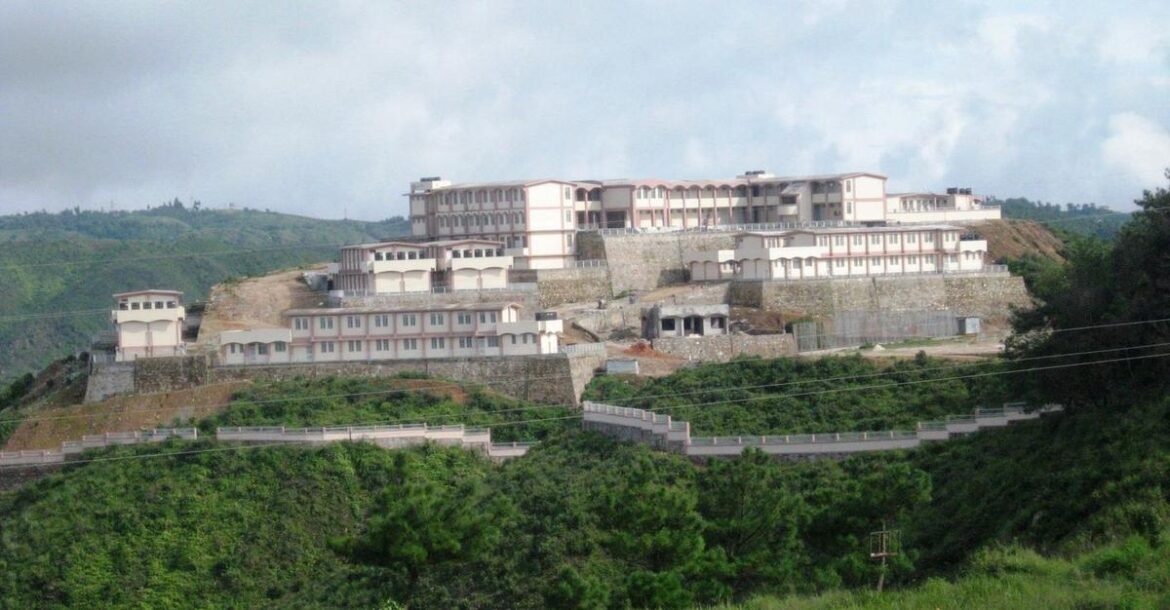Justice for Nathaniel: Meghalaya High Court Orders ₹6.5 Lakh Compensation over Electrocution Tragedy
A year after a tragic incident shook a school community in Meghalaya, the High Court has stepped in. The death of 17-year-old Nathaniel Sohtun, a Class 11 student of Jawahar Navodaya Vidyalaya (JNV), Mawphlang, due to electrocution at his hostel, has now resulted in a court-mandated compensation of ₹6.5 lakh to his grieving parents. The ruling brings some semblance of closure to what many consider a preventable loss.
Timeline of Events That Led to This Judgment
- August 2023 – Nathaniel Sohtun was electrocuted on the hostel terrace of JNV Mawphlang after a game session, while taking a shower with his friends.
- September 2023 – Amid growing concerns, an ex gratia payment of ₹1 lakh was extended to his parents by the school.
- Late 2023 – Nathaniel’s mother, Phidapherlin Sohtun, filed a writ petition in the Meghalaya High Court, alleging negligence by school authorities.
- 6 May 2024 – A single-judge bench led by Justice Hamar Sing Thangkhiew ordered a further compensation of ₹6.5 lakh, to be disbursed within eight weeks.
High Court Observations Spark Broader Concerns
The Meghalaya High Court was clear in its conclusions. It found both negligence and systemic failure within the school structure. While no single person was held criminally liable—at least not yet—the responsibility for basic safety seemed to have fallen through the cracks.
“Notwithstanding the fact that the place of the incident was restricted and supposed to be under lock and key, the very fact that the same was left unlocked is a failure in the discharge of assigned duties on the part of the teacher concerned,” said Justice Hamar Sing Thangkhiew.
That observation points at a troubling lack of supervision in spaces that should have been off-limits. The terrace should have been inaccessible. But it wasn’t. Why?
The court also acknowledged that several school infrastructure reports reflected poor electrical safety standards. There were faulty wirings, exposed wires, and a general absence of certified electricians maintaining the school’s electricity systems. That context made what happened to Nathaniel feel even heavier. You can’t help but wonder how many times such hazards were ignored.
Official Commitments and Court-Mandated Measures
While passing the ruling, the court gave specific instructions aimed at preventing similar tragedies in the future. According to the judgment, the school must:
- Conduct periodic safety audits of all electrical installations
- Hire only qualified, certified electricians
- Place warning and “danger” signs clearly in high-risk areas
- Keep hazardous zones, including stairways to terraces, strictly locked and supervised
The school has also been asked to report back on its compliance with these directions. It’s not just about Nathaniel now. It’s about every student who may be spending nights in institutions with loose wires and open access to danger.
Community Response and Parental Voices
The news of Nathaniel’s death had initially sent shockwaves across Mawphlang and adjoining areas. There was quiet outrage, murmured conversations at local markets, and parent-teacher meetings that never quite answered the difficult questions. Why was no one watching? Did no one know?
With the High Court’s order, a sense of accountability might be returning—but slowly and cautiously. Some parents feel relieved, saying the ruling sends a message. One parent, speaking off the record, said, “This is not about money. It’s acknowledgment. It’s saying something went very wrong here.”
Students who knew Nathaniel remember him as kind-hearted and full of ideas. The suddenness of his death struck them hard. “He had a smile that felt like you could trust him,” said one senior who requested not to be named. “And now, we shower with fear.”
The Pending Criminal Case
The court also commented on the ongoing criminal investigation. A charge sheet has been filed against three individuals associated with the school, but not against principal Neelam Sharma. The court held that there was no established criminal negligence against her at this point.
Still, the fact that criminal proceedings continue suggests complications may emerge as the trial proceeds. Once again, it’s difficult not to feel the weight of that ambiguity—like justice is both here and not here yet.
What’s Next? Looking Ahead for Meghalaya’s Schools
This case isn’t just about one boy or one hostel. It scratches at a much larger issue—how safe are our educational institutions? In the rush to offer education, infrastructure is sometimes neglected, concealed behind whitewashed walls and official paperwork. That needs to change.
Here’s what schools, especially residential ones, could consider moving forward:
- Monthly infrastructure checks, registered and documented
- Emergency response drills and student orientation sessions
- Anonymous reporting systems for potential risks
- External audits of safety protocols
JNV schools across the country may now feel the pressure to reform. And maybe that’s how some measure of good can come from sorrow.
You might be asking yourself right now—would I have noticed that exposed wire? Would I have told someone? Would it have mattered? Those are unsettling questions. But maybe they’re the ones that matter most.
In Memory of Nathaniel Sohtun
The school’s stone-cold façade and the court documents can’t capture who Nathaniel really was. Maybe that’s why his story lingers. It’s not just a legal case. It’s a wake-up call. One that speaks to the silent corners of hostels, the dark stairways, and the responsibilities adults carry—whether they acknowledge them or not.

